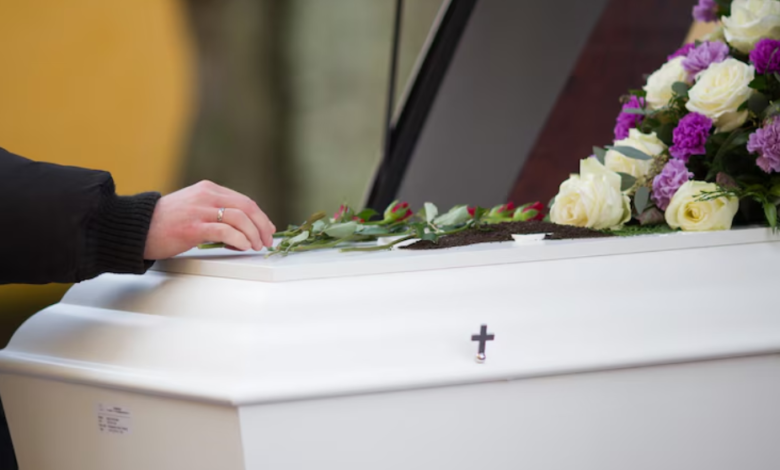What to Know About Las Vegas Cremation Services: A Practical Guide for Families

Nobody really wants to talk about death but that is the ultimate truth. It’s uncomfortable, sometimes painful, and almost always avoided—until it becomes a reality. And when it does, there’s this rush of questions and decisions that need answers fast. For families trying to stay grounded through all that stress, a little preparation will go a long way to address this truth.
One of the most common choices people face during this time is whether to go with burial or cremation. In a place like Nevada, Las Vegas cremation services are becoming more widely chosen, often for reasons that go beyond cost. People want simplicity. They want flexibility. And maybe, in some cases, they want a little space to figure things out without pressure.
Why Cremation Has Become More Common in Las Vegas
It’s not just a trend. It’s a shift in how people think about after-death care.
Burials come with traditions, and that’s meaningful for some. But others find them overwhelming—emotionally, financially, logistically. Cremation, on the other hand, offers a quieter way through it all. There’s usually less urgency. Fewer decisions to make upfront. And you can plan things out in a way that feels less… rigid.
Some reasons families are choosing cremation:
- Fewer costs compared to casket burials
- No need for embalming
- The option to hold a memorial later
- Easier to transport remains for scattering or sharing
It’s not always about cutting corners. Sometimes it’s just about what feels right at the moment. Or what someone said they wanted long before the topic got hard to bring up again.
What Actually Happens During Cremation?
Here’s where things get a little technical—but not in a way that should make you tune out.
After the legal forms are handled (more on that soon), the body is placed into a chamber designed for high heat. This isn’t something done in a rush. The temperature climbs slowly and stays steady, often reaching around 1,600 degrees Fahrenheit. The entire process can take two to three hours.
What’s left after this are bone fragments. Not soft ash, like most people imagine. Those fragments are then carefully processed down into a fine powder. That’s what’s returned to the family.
There’s also something called alkaline hydrolysis, which doesn’t use flames at all. Instead, it relies on water, pressure, and temperature to achieve the same result. It’s considered gentler and more eco-conscious, though it’s not yet available everywhere in the state. Still, it’s on the radar for a reason.
Legal and Paperwork Basics in Nevada
Before cremation can happen, Nevada law requires certain things to be in place. Someone legally authorized must give permission. If the deceased had signed paperwork ahead of time, that makes things much easier. If not, the next of kin—usually a spouse, child, or parent—will need to sign off.
There’s also a cremation permit to be filed, and the death certificate has to be completed by the attending physician or coroner. Many cremation providers will handle this, but not all do it without extra charges.
Quick tip: don’t assume anything. It’s okay to ask what’s included, even if the conversation feels awkward.
See also: Top Mental Health and Burnout Apps to Boost Your Wellbeing in 2025
Picking a Cremation Provider in Las Vegas
There are quite a few providers around the city, and while most are reputable, not all operate the same way. Some are part of funeral homes. Others offer only direct cremation with no extras. Some give families options for memorial services; others don’t.
When comparing options, consider asking:
- Are they properly licensed in Nevada?
- Can they explain the full process clearly?
- Will they help with transportation or paperwork?
- Do they allow for in-person identification or viewings?
- How are the remains returned—and in what kind of container?
It might sound like a lot, but these are things you don’t want to be surprised by later.
What Happens to the Ashes?
Once the cremation is complete, the ashes—also called cremated remains—are given to the family in an urn or a temporary container. What happens next is really up to the people involved.
Some families choose to scatter the ashes somewhere that mattered to the person. Others keep them at home. There are even services that divide remains into keepsakes for several family members. It’s personal. And honestly, there’s no right or wrong here.
One option gaining attention lately is natural organic reduction. It’s also called human composting, and while it’s not yet allowed in Nevada, a few states have made it legal. A handful of families have begun looking into out-of-state services and offering them. Just something to keep in mind if environmental concerns are important.
Don’t Let Pricing Confuse You
Some cremation providers advertise extremely low rates. That’s fine, but always check what’s actually included.
Does the price cover the container? Transportation? The return of remains? Are there fees for forms or delivery? Ask these up front. What looks like a deal might come with surprises.
Also, not everything that costs more is automatically better. It’s okay to want something simple, as long as it’s handled with care.
After It’s Done, Then What?
After the remains are returned, there’s still one thing most people don’t talk about: the silence.
Some families feel a strange kind of stillness. Like everything happened so fast, and now… nothing. That can be unsettling. Grief doesn’t end just because the paperwork does. So if the days feel quiet, or you find yourself replaying decisions in your head, know that’s common.
Sometimes people don’t know what to do with the ashes right away. That’s okay. Let them sit for a bit. Take your time. Decisions can wait.
Closing Thoughts
Cremation isn’t a shortcut. It’s not about skipping out on something important. It’s just a different way of saying goodbye. And in places like Las Vegas, where families are often spread across states or even countries, it can be the one option that gives everyone a chance to pause and participate—when they’re ready.
You don’t need to figure it all out at once. You don’t have to do what everyone else does. Just focus on what feels thoughtful. What feels manageable. And maybe, what would the person you’re honouring have chosen if you’d had that conversation earlier?




